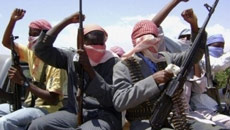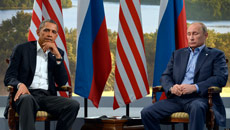WASHINGTON — The biggest development in the Keystone XL saga Friday wasn't witnessed in the U.S. Congress. It was witnessed, however, by Nobel Peace Prize winner Aung San Suu Kyi.
That's because it happened in Myanmar.
That's where U.S. President Barack Obama made his most critical comments ever about the pipeline, which has stagnated for six years amid legal and political disputes.
A bill to approve the project made it one-third of the way to reality Friday. It easily passed the U.S. House of Representatives, the ninth time the Republican-dominated chamber adopted such a measure. It faces a tougher test next week in the Senate, which is still controlled by Democrats until a new session begins next year.
But the final hurdle is the White House.
No matter what happens, the pipeline needs the presidential seal of approval. To cross the Canada-U.S. border and get connected to its already-built southern leg, the project needs Obama's endorsement. If lawmakers try forcing a bill on the issue, as they are now, it needs Obama's signature to pass.
And on Friday, the U.S. president sounded like a man making the case against the project. In an ironic twist, he happened to shrug off that Canadian oil project while standing beside an honourary Canadian citizen.
Obama was asked about political developments back home during a joint news conference with Suu Kyi, the long-persecuted democracy activist. With his fellow Nobel Peace Prize winner by his side, Obama went to war against the logic used by pipeline proponents.
He heaped scorn on the idea that the project will do much for Americans. He suggested that because it doesn't mean much to Americans on economic grounds, he'll judge the plan on its environmental merits.
"I have to constantly push back against this idea that, somehow, the Keystone pipeline is either this massive jobs bill for the United States or is somehow lowering gas prices," Obama said during the news conference.
"Understand what this project is: It is providing the ability of Canada to pump their oil, send it through our land down to the Gulf, where it will be sold everywhere else. It doesn't have an impact on U.S. gas prices."
He emphasized the words "Canada" and "their."
The Canadian pipeline company trying to finish the project pushed back. TransCanada Corp. issued a statement noting that it would create tens of thousands of U.S. construction jobs, pick up some oil from the Midwestern U.S., and carry its cargo through the already-completed southern portion of the pipeline to U.S. refineries in Texas.
In the long run, this week's developments might not mean much.
The fact that the issue popped up on the first day of congressional work after the U.S. midterms caught people off-guard. All signs had pointed to, and still point to, the issue resurfacing in the new year.
Two unrelated but major developments have yet to occur: the completion of the State Department-led review, and the swearing-in of a new Republican-dominated Congress.
At that point, Obama would either have to approve the pipeline on his own, or face consistent pressure to do so by a Republican party that has made it a top priority.
The main actor in pushing Keystone this week is Mary Landrieu, a Democratic senator who is expected to lose her seat in a runoff election in the oil-refining state of Louisiana.
After the holidays, the dynamics could be dramatically different.
Not only will the new Congress be sworn in, but a Nebraska court verdict is also expected in a dispute involving the route. And the Obama administration has said it will release its regulatory review after that verdict.
The White House has hinted that it will veto any bill that tries to short-circuit the review process — just as it scuppered a congressional attempt to do so before the 2012 election.





